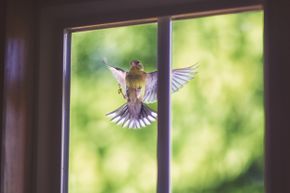Early man likened birds to the gods, believing them messengers or even representations of the gods themselves. Thanks to this divine comparison, as well as their ability to soar high overhead, it's no surprise that birds have gained a near-mythical reputation. That's given our avian friends a starring role in superstitions related to death, life and luck.
While some bird superstitions are nearly universal, bringing luck or bad fortune in any language, others have a decidedly regional flare, giving species hated by some a chance at redemption by others. Some long-held bird beliefs even manage to contradict one another, giving a species a lucky aura in one region and an air of wickedness in others.
Advertisement
Sometimes it's not even the bird itself, but rather its actions that bring either luck or misfortune. Sure, it may sound confusing, but it also makes it easier to roll with the unlucky avian interactions and take full advantage of the ones deemed to bring a touch of luck. Read on to learn the origins behind bird superstitions and find out which still influence our way of life.






















